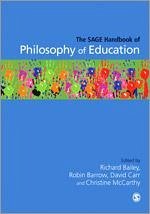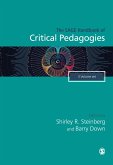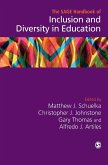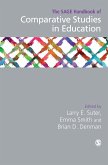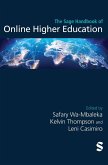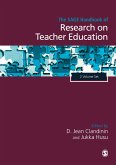This book provides an authoritative, yet accessible guide to the Philosophy of Education, its scope, its key thinkers and movements, and its potential contribution to a range of educational concerns. The text offers a balanced view of three key dimensions: first, in giving an equal weight to different styles and modes of philosophy; second, by including past and present perspectives on philosophy of education; and third, in covering both the general "perennial" issues in philosophy and issues of more contemporary concern.
Section one of the book exemplifies different styles of philosophy, paying attention to the contemporary debates as to the nature, possibilities and limitations of these different approaches to philosophy of education. Section two is devoted to particular thinkers of the past, and more general coverage of the history of philosophy of education. Section three is dedicated to contemporary philosophic thought on education, providing the basis and reference point for an exploration of contemporary issues.
The handbook is designed primarily to be useful to students studying the field of philosophy of education, in the context of the study of educational foundations or theory. But it is also designed to be of use to practising teachers who wish to gain easy access to current philosophical thinking on particular contemporary educational issues, and to educationalists of all types who want a succinct guide to questions relating to the nature, the history, and the current state of the art of philosophy of education.
Section one of the book exemplifies different styles of philosophy, paying attention to the contemporary debates as to the nature, possibilities and limitations of these different approaches to philosophy of education. Section two is devoted to particular thinkers of the past, and more general coverage of the history of philosophy of education. Section three is dedicated to contemporary philosophic thought on education, providing the basis and reference point for an exploration of contemporary issues.
The handbook is designed primarily to be useful to students studying the field of philosophy of education, in the context of the study of educational foundations or theory. But it is also designed to be of use to practising teachers who wish to gain easy access to current philosophical thinking on particular contemporary educational issues, and to educationalists of all types who want a succinct guide to questions relating to the nature, the history, and the current state of the art of philosophy of education.
'This is an impressive collection of contributions from many of the leading figures in the field of philosophy of education in the Western world. It is wide ranging in its scope and coverage of the field and offers perhaps the best single point of reference for anyone wanting to see what the subject has to offer to an understanding of education as a field of practice, policy and enquiry -- and that, as these well crafted pieces demonstrate, is a lot' -
David Bridges
Professor Emeritus, University of East Anglia, Professorial Fellow, University of Cambridge Faculty of Education
"This volume is to be recommended to all educators with an interest in philosophy of education... the quality of writing was excellent throughout [with] examples of what a range of perspectives looks like, with an admirable ability to consider the weaknesses of these positions alongside their strengths...highly recommended as an introduction to the field."
Journal of Research in International Education
"In brief, this SAGE Handbook is an interesting and informative book on philosophy of education. It can be "handy" to a wide range of interested readers, eg, students of different educational disciplines new to the area of philosophy; teachers, with no familiarity with philosophy who are keen to gain a basic knowledge of educational philosophy; and those with a desire to apply philosophy to educational practice. The book oscillates between classical and contemporary philosophical thought which provides a helpful perspective for the reader. It reflects on philosophical thoughts in an unambiguous, simplified, and attractive manner as well as supporting the significant relationship between educational practice and philosophical enquiry of the contemporary world."
Educate
David Bridges
Professor Emeritus, University of East Anglia, Professorial Fellow, University of Cambridge Faculty of Education
"This volume is to be recommended to all educators with an interest in philosophy of education... the quality of writing was excellent throughout [with] examples of what a range of perspectives looks like, with an admirable ability to consider the weaknesses of these positions alongside their strengths...highly recommended as an introduction to the field."
Journal of Research in International Education
"In brief, this SAGE Handbook is an interesting and informative book on philosophy of education. It can be "handy" to a wide range of interested readers, eg, students of different educational disciplines new to the area of philosophy; teachers, with no familiarity with philosophy who are keen to gain a basic knowledge of educational philosophy; and those with a desire to apply philosophy to educational practice. The book oscillates between classical and contemporary philosophical thought which provides a helpful perspective for the reader. It reflects on philosophical thoughts in an unambiguous, simplified, and attractive manner as well as supporting the significant relationship between educational practice and philosophical enquiry of the contemporary world."
Educate

